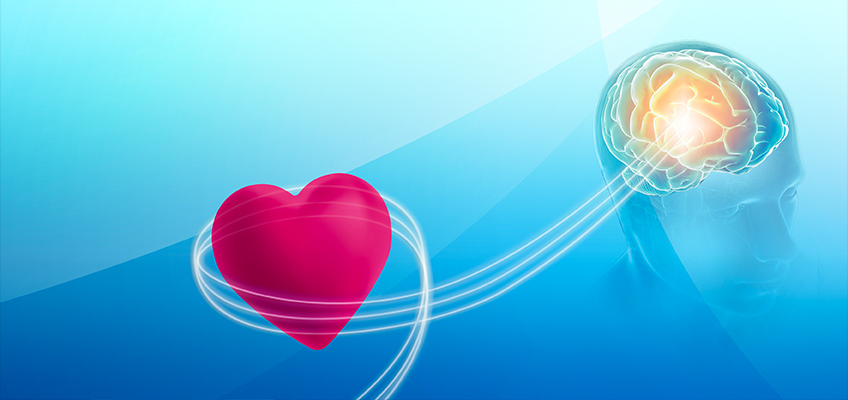
Heart intelligence is the flow of awareness, understanding and intuition we experience when the mind and emotions are brought into coherent alignment with the heart. It can be activated through self-initiated practice, and the more we pay attention when we sense the heart is speaking to us or guiding us, the greater our ability to access this intelligence and guidance more frequently. Heart intelligence underlies cellular organization and guides and evolves organisms toward increased order, awareness and coherence of their bodies’ systems.
Throughout much of recorded history, human beings have understood that intelligence, the ability to learn, understand, reason and apply knowledge to shape their environment, was a function of the brain in the head.
There also is ample evidence in the writings and oral traditions societies passed down through the generations that they strongly believed in an intelligent heart.
Research into the idea of heart intelligence began accelerating in the second half of the 20th century. During the 1960s and ’70s pioneer physiologists John and Beatrice Lacey conducted research that showed the heart actually communicates with the brain in ways that greatly affect how we perceive and react to the world around us. In 1991, the year the HeartMath Institute was established, pioneer neurocardiologist Dr. J. Andrew Armour introduced the term “heart brain.” He said the heart possessed a complex and intrinsic nervous system that is a brain.
Today, more than a half century after the Laceys began their research, we know a great deal more about the heart:
- The heart sends us emotional and intuitive signals to help govern our lives.
- The heart directs and aligns many systems in the body so that they can function in harmony with one another.
- The heart is in constant communication with the brain. The heart’s intrinsic brain and nervous system relay information back to the brain in the cranium, creating a two-way communication system between heart and brain.
- The heart makes many of its own decisions.
- The heart starts beating in the unborn fetus before the brain has been formed, a process scientists call autorhythmic.
- Humans form an emotional brain long before a rational one, and a beating heart before either.
- The heart has its own independent complex nervous system known as “the brain in the heart.”
Although scientists say it is clear there is still much to learn, future generations may well look back and cite another important discovery as one of the most pivotal of the 20th century. The HeartMath Solution, the book that details the program used by hundreds of thousands of people to access and utilize heart intelligence to improve their lives, discusses this discovery.
“Researchers began showing in the 1980s and ’90s that success in life depended more on an individual’s ability to effectively manage emotions than on the intellectual ability of the brain in the head,” says The HeartMath Solution, by HeartMath founder Doc Childre and his associate and longtime HeartMath spokesman Howard Martin.
This discovery naturally resulted in people wanting to know how to infuse emotions with intelligence.
Scientists at the nonprofit HeartMath Institute , which had been conducting research into heart intelligence and emotions posed the theory that “heart intelligence actually transfers intelligence to the emotions and instills the power of emotional management,” the book explains. “In other words, heart intelligence is really the source of emotional intelligence.
“From our research at the HeartMath Institute, we've concluded that intelligence and intuition are heightened when we learn to listen more deeply to our own heart. It’s through learning how to decipher messages we receive from our heart that we gain the keen perception needed to effectively manage our emotions in the midst of life’s challenges. The more we learn to listen to and follow our heart intelligence, the more educated, balanced and coherent our emotions become. Without the guiding influence of the heart we easily fall prey to reactive emotions such as insecurity, anger, fear and blame as well as other energy-draining reactions and behaviors.”
Early HeartMath research found that negative emotions threw the nervous system out of balance and when that happened heart rhythms became disordered and appeared jagged on a heart monitor. This placed stress on the physical heart and other organs and threatened serious health problems.
“Positive emotions, by contrast, were found to increase order and balance in the nervous system and produce smooth, harmonious heart rhythms,” Childre and Martin wrote. “But these harmonious and coherent rhythms did more than reduce stress: They actually enhanced people’s ability to clearly perceive the world around them.”
Learn more about heart intelligence and emotions in HMI’s research section at Science of the Heart.

